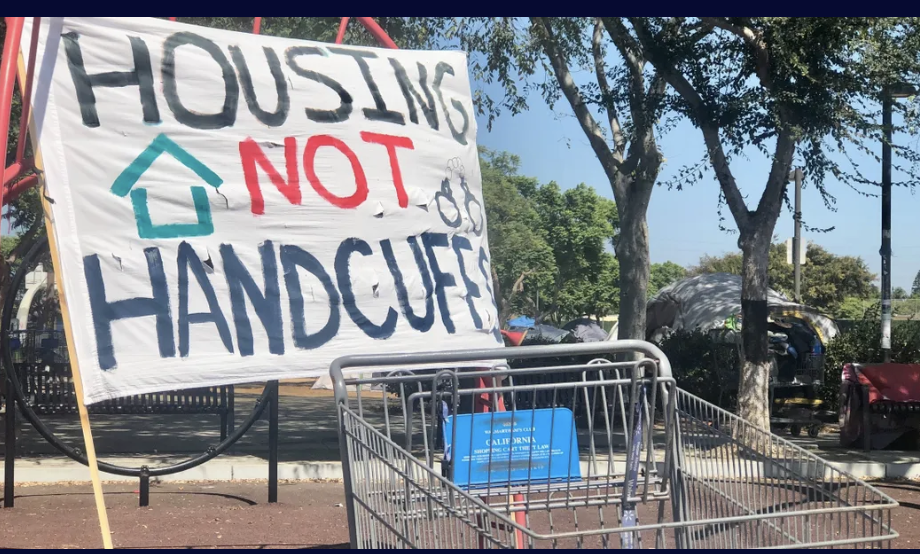
Reprinted with permission from Street Sheet, a project of the San Francisco Coalition on Homelessness. View original article here.
‘The City can address street homelessness while respecting unhoused individuals’ rights . . . to see the Supreme Court contemplating taking away yet another set of basic civil liberties is deeply disturbing.’ (From update below on the Coalition on Homelessness’ lawsuit on homeless sweeps.)
SAN FRANCISCO — The Coalition on Homelessness’s lawsuit may be put on hold after the City of San Francisco filed a motion to pause the ongoing case. The City Attorney’s office announced its request to the federal district court for a stay days after the U.S. Supreme Court said on January 12 it will review an Oregon case, which has close parallels to the homeless advocacy organization’s ongoing lawsuit.
The Supreme Court will decide whether it should be illegal to arrest and cite unhoused people for unauthorized lodging without offering immediate available shelter.
The outcome of the Supreme Court case could reverberate in the Coalition’s lawsuit against the City, which was filed in 2022. The suit accuses the City of criminalizing unhoused people for inhabiting the street as long as they have no other shelter, as well as destroying their property in sweeps, against City policy.
The Lawyers’ Committee for Civil Rights of the Bay Area, which represents the Coalition and seven unhoused plaintiffs, maintains these practices violate constitutional rights against illegal search and seizure, and cruel and unusual punishment. The Lawyers’ Committee said that its action is guided by a case called Martin v. Boise, which the 9th Circuit upheld in 2019.
That could change if the Supreme Court—with its conservative majority—overturns a decision in the 2018 case Johnson v. Grants Pass. In that case, a court said the city of Grants Pass in southwestern Oregon could not issue citations to people for sleeping on public property while no shelter beds were available.
But attorneys for the plaintiffs in the San Francisco case aren’t deterred by the City’s motion to stay the case—or the nation’s highest court granting a review of the Johnson case to be heard in June.
“Even with the Supreme Court’s review of Grants Pass underway, the case in San Francisco should proceed,” said Nisha Kashyap, senior staff attorney with the Lawyers’ Committee and one of the attorneys representing the Coalition in the case. “Unhoused people should not continue to be subject to these unlawful practices, and the entire community deserves a timely resolution to all the important issues at stake in the case.”
In 2023, Mayor London Breed wrote a brief supporting Grants Pass’s request to the Supreme Court. As part of the brief, she urged the Supreme Court to summarily reverse the 9th Circuit’s decision, an extraordinary request aimed at invalidating the ruling.
Julian Highsmith, the Coalition’s communications and policy director, worries that homeless people’s rights would be in jeopardy if the Supreme Court sides with Grants Pass.
“The City can address street homelessness while respecting unhoused individuals’ rights,” he said. “To see the Supreme Court contemplating taking away yet another set of basic civil liberties is deeply disturbing.”
John Do, a senior staff attorney with the American Civil Liberties Union of Northern California, which is also representing the Coalition, said that the cruel and unusual punishment aspect is just one of several claims in the Coalition’s lawsuit, and he doesn’t see any reason why the litigation should be stalled.
“The Supreme Court can and should affirm that the government can’t jail you based on your status, who you are, or a condition you have,” he said. “The case can proceed and take into account any future Supreme Court ruling. The majority of our case is unrelated to whether the City’s practices are cruel and unusual punishment under the Eighth Amendment and must be resolved.” .
The Lawyers’ Committee said in a press statement it will respond to the City’s request for a stay in district court later in the month. The trial is scheduled to begin in October.
